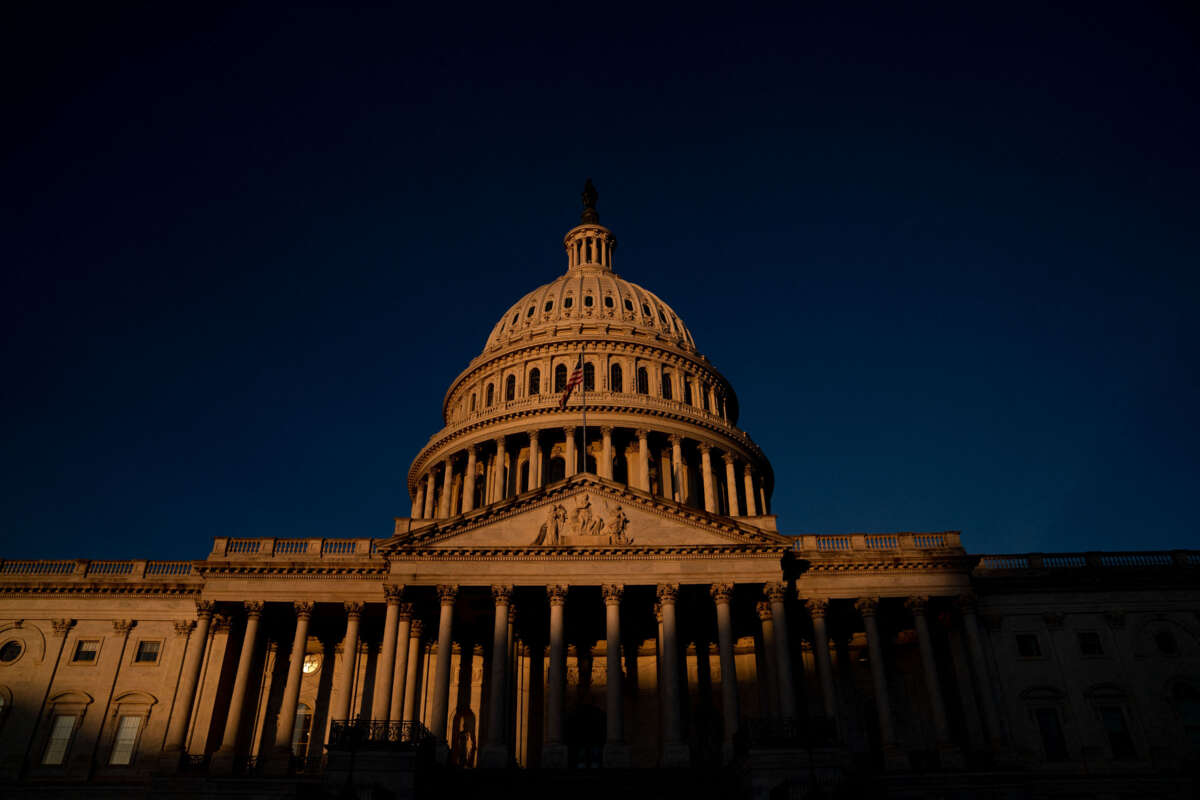Did you know that Truthout is a nonprofit and independently funded by readers like you? If you value what we do, please support our work with a donation.
Dozens of lawmakers within Congress are opting not to run for reelection in 2024, signaling a growing discontent with the extremely partisan and dysfunctional way the legislative branch of the federal government has operated in recent months.
Thirty-eight members of Congress — seven Senators and 31 members of the House of Representatives — have said they will not seek reelection next year. In November alone, 13 Senators and Representatives announced they wouldn’t run, the largest number to do so in a single month in over a decade.
Age could be a factor as to why some people are retiring — the average age for a U.S. senator in this session of Congress, for example, is the oldest it’s ever been in the nation’s history. But according to Axios, a “perfect storm for retirements” has been created due to bitterness and dysfunction, both between and within parties, including a growing number of censure and impeachment resolutions, government shutdown threats, and the uncertainty from last month’s House speakership fiasco.
Some members are retiring outright, while about half are seeking office elsewhere. Of the 31 House members not running, 15 are running for other elected offices, including U.S. senator, state attorney general, and governor — and one lawmaker (Rep. Dean Phillips, a Democrat from Minnesota) is running for president. The other 16 House members are leaving public service altogether.
The number of lawmakers making an exit this early in an election cycle is unusual. According to Ballotpedia, the 31 House members leaving at this point ties with the number that didn’t run in 2018, and is seven more than said they wouldn’t run for reelection in 2022, and four more than those who said so at this point in 2020.
On the Senate side, the seven announcing their intention to retire is greater than in those previous election cycles: in 2022, six had announced retirement at this point; in 2020, the number was four; and in 2018, only two lawmakers had announced that they wouldn’t run again at this point in the cycle.
Even with some members of Congress running for other offices, the exodus of this many lawmakers at this point suggests a collective desire to quit the federal legislative branch because of its current dysfunction more than anything else. Several lawmakers have been vocal about the problems that have only gotten worse over the course of this past legislative session.
“This feeling that the sacrifice we’re all making in order to be in Washington, to be witness to this chaos, is pretty difficult to make,” Rep. Dan Kildee (D-Michigan) said to The New York Times about his decision to leave, describing the most recent parts of his 10-year tenure as the “most unsatisfying period in my time in Congress because of the absolute chaos and the lack of any serious commitment to effective governance.”
Intraparty squabbles, particularly among Republicans, are also forcing some members to make the difficult decision to leave.
“We lost our way. We have an identity crisis in the Republican Party,” said Rep. Ken Buck (R-Colorado), explaining to The Times earlier this month why he is not running again. “If we can’t address the election denier issue and we continue down that path, we won’t have credibility with the American people that we are going to solve problems.”
“Right now, Washington, D.C., is broken; it is hard to get anything done,” Rep. Debbie Lesko, a Republican from Arizona who is retiring, also said, specifically citing the House speaker battle.
Despite a desire to leave the chaos behind, the broad exodus of lawmakers from Congress could actually lead to more problems, especially on the Republican side of the political aisle, as GOP members who are leaving are generally more disposed to take their jobs seriously than engage in partisan shenanigans.
“What’s very pronounced for 2024 is we’re seeing a raft of retirements on the part of more institutionalist members,” the Cook Political Report’s David Wasserman said. “I think that list [of people retiring] on the Republican side will grow in the next month.”
Media that fights fascism
Truthout is funded almost entirely by readers — that’s why we can speak truth to power and cut against the mainstream narrative. But independent journalists at Truthout face mounting political repression under Trump.
We rely on your support to survive McCarthyist censorship. Please make a tax-deductible one-time or monthly donation.
